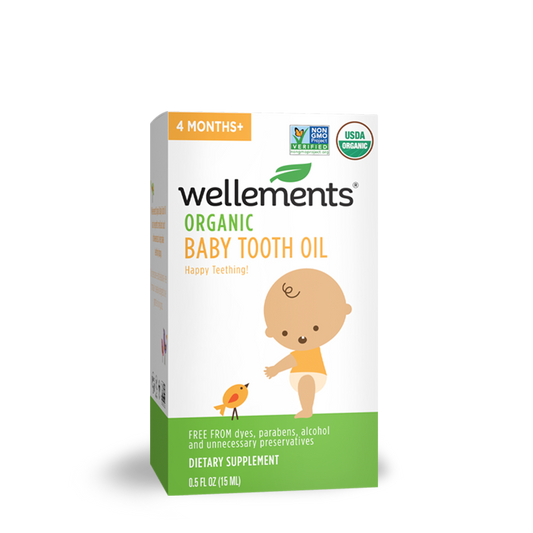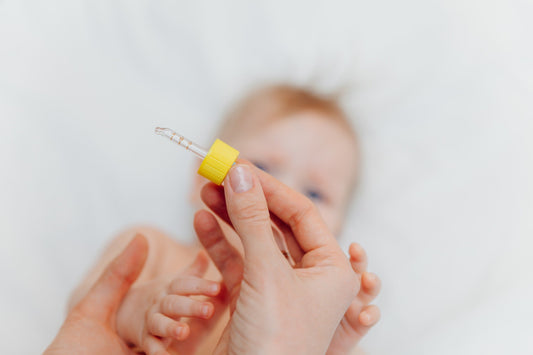Time to Call Your Pediatrician?
| updated:Share

New mommies and daddies often have so many emotions and fears when their little ones enter the world. We expect and know this to be the reality.
As a pediatrician with 17 years of practice, I am part of a community whose purpose is to keep your child happy and healthy. We view ourselves as an extension of your family. Our role as your pediatrician is to provide you calm in your beautiful new storm of parenting. Therefore, just as we welcome lists of questions when you are in our office for your child’s well or sick visits, we also want you to feel and know you can call with any questions or concerns.
If your parent-gut is concerned or you’re not sleeping because you’re stewing over an issue or problem, big or small, we want to hear from you! However, to make things a little bit easier for mom and dad, we’ve put together a list of common occurrences you will most likely experience with your little one and how to tell if you can just ride it out along with the red flags you should most definitely pay attention to!
Fever in Babies
First things first. Let me dispel a big rumor about fevers, in general. Fevers are not necessarily bad. They indicate your body is fighting something – a physiologic, normal immune system response. When your body creates a fever, it’s heating itself, much like you heat meat to kill off infectious agents so they don’t make you sick. They will not cause brain damage when they are in response to infection.
A true fever is a temperature greater than 100.4 degrees. In the first two months of life, a temperature above 100.4 degrees is a red flag to call your doctor. Seek medical care immediately, especially if associated with lethargy and decreased feeding. We don’t recommend the use of fever reducers, like Tylenol (acetaminophen) or Motrin (ibuprofen) for this age group.
For older babies and children, you can use fever reducers. Their purpose, however, is not to treat fever but to make your child feel better. Therefore, if your child is acting fine with a fever, is happy and playful and eating and drinking okay, you don’t necessarily have to give them anything but love. Alternatively, if they have a fever and are fussy, lethargic or acting sick, then you can give them a fever reducer such as Tylenol or Motrin. If you give them one of these agents and they don’t perk up within a half hour to 45 minutes, this is a red flag. Call your healthcare provider. Just remember, fever reducers are not typically recommended for children under six months of age. Also, avoid them if your child is vomiting.
Again, these medications should make a child feel better. Their goal isn’t necessarily to normalize their temperature but to reduce the fever to the point where they perk up. I always tell my patient families, “they should make a withered flower stand upright.” Again, if the medications don’t do this within 45 minutes, call your healthcare provider. Also, don’t worry if you give them a fever reducer and their temperature is still elevated. If they are feeling better and they still have a temperature elevation, this is okay!
In addition, keep in mind that temperatures fluctuate throughout the day. In the morning, our body temperature is at its lowest. Therefore, don’t assume that if your child wakes up fever-free in the morning that this won’t change throughout the day. In fact, the evenings are when a child’s fever will typically go to the highest reading. Bottom line, an elevated temperature is okay. If you use a fever reducer, it should make your child feel better temporarily; Tylenol, typically for four to six hours and Motrin, for six to eight hours. One last thing, if they have an elevated temperature for more than a couple of days, give your pediatrician a call. That’s what they are there for. We welcome all questions!
4.5 /
5.0
(78)
78
total reviews
Baby Tooth Oil
Sale price
$9.99
Vomiting and Diarrhea in Babies
Vomiting that appears to be a fluorescent yellow/green color is a red flag because it can be associated with an intestinal blockage. Vomit that is blood-tinged or coffee-grounds color is also a red flag and potentially serious, as it can be an indicator of bleeding somewhere along the upper gastrointestinal tract. A few episodes of vomiting otherwise can be as simple as an upset stomach. Vomiting and diarrhea often come together as a package when a person has a “stomach flu”. It’s the bodies way of getting rid of the germ.
Other red flags are fever associated with vomiting and diarrhea, severe abdominal pain, prolonged vomiting and diarrhea, blood/mucus in diarrhea, decreased urine output (less than 3 urines in a day), dry and cracked lips, dry mouth, decreased or lack of tear production, severe lethargy. Again, any concern, give us a call!
Rashes on Babies
Rashes are common and can be as simple as a contact irritation from something like poison ivy, new sunscreen or soap. Your little one could even have a common, chronic, easily treatable condition called eczema. It could also be an insect bite or a benign newborn rash. However, they can also be very, very serious.
If your child has a rash and it’s accompanied by fever, lethargy, or any concerns with breathing, these are all red flags. Call your pediatrician or seek immediate care. Rashes are often very hard to diagnose with just a phone call. However, a phone call will typically help guide you as to whether or not your child needs to be seen and how quickly they should get checked out. Again, call your pediatrician if you have any concerns, whatsoever.
Breathing Concerns in Babies
All newborns will have some congestion, sneezing and even hiccups in the first few months of their new little life. Don’t be alarmed by this. In babies, one clue indicating that they are probably okay is if they are breast or formula-feeding without any issues. Also, when a child has a cough, this, much like a fever, is a physiologic trigger to help mobilize secretions so they don’t settle in the lungs – a very good thing!
However, if your child is acting air hungry with nostrils flaring, rapid breathing, rib cage sucking in (retractions), color changes, choking, gagging, and/or pauses in breathing lasting 15-20 seconds, these are all major red flags and require medical attention. Call your pediatrician immediately or 911 if you think your child is in distress.
Head Trauma in Babies
Guaranteed, your crawling baby, toddler or child will hit their head at some point. They love to explore their environment, and with that, often times have no fear. So, when do you call us? Again, if you’re worried, don’t hesitate to pick up the phone. We get phone calls every single day regarding kids rolling off changing tables or couches – totally normal. Those little people often decide they’re ready to roll when you least expect it. If they fall from a distance that is longer than their height onto a hard surface, this is concerning. Otherwise, if they fall from a short distance onto a soft surface and are acting fine, they are likely in the clear. If they lose consciousness, are acting abnormal, confused, lethargic or vomit two times after the injury, these are red flags.
Abdominal Pain in Babies
Stomachaches are super common. Much like adults, your child may just have gas or need to poop or something that they ate didn’t agree with them. If it’s prolonged, gets worse, causes them to double over due to the intensity of the pain, or if they are in major distress, especially if associated with, as discussed above, vomiting that looks fluorescent green/yellow, if their belly is hard, tense, swollen, distended, or if the pain is associated with fever, these are all red flags and reasons to call your pediatrician and seek medical care.
Bottom line, trust your gut and always know we are just a phone call away! We love your precious children and want to be a partner in their care.



